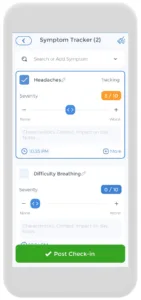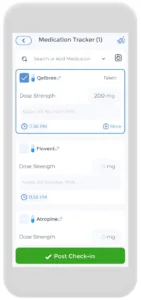
The use of Adderall has become increasingly common among students, athletes, and professionals who seek to enhance focus and concentration. In individuals with attention deficit hyperactivity disorder, Taking Adderall can be an incredible ADHD medication. However, the potential for side effects associated with taking Adderall use has led many to consider alternative approaches to managing symptoms. One such approach is the use of Vitamin C, which has been shown to interact with Adderall in various ways.
In this article, we will explore the basics of taking Adderall, including how it works and some common side effects. Then, we will discuss Vitamin C, including the use of Vitamin C supplements and their interactions with Adderall. Whether you are someone who is taking Adderall but having difficulty dealing with side effects, or simply just want to explore another option, continue reading to learn about the crossroad between taking Adderall and Vitamin C![1][2]
Understanding Adderall and Its Effects
What is Adderall?
Adderall is a prescription ADHD medication that is used primarily to treat attention deficit hyperactivity disorder (ADHD). It is a CNS stimulant medication that is composed of two active ingredients: amphetamine and dextroamphetamine. These compounds function by increasing the levels of certain neurotransmitters in the brain, which can help to improve focus and concentration.
ADHD is a neurodevelopmental disorder that affects the central nervous system of both children and adults. It is characterized by symptoms such as inattention, hyperactivity, and impulsivity. People with ADHD often struggle with completing tasks, paying attention, and staying organized. These symptoms can significantly impact their daily lives and make it difficult to succeed in school, work, and relationships.
How Does Adderall Work?
A key component of Adderall’s effects is its ability to increase the levels of dopamine and norepinephrine in the brain. These neurotransmitters are responsible for regulating attention and mood, respectively, and are often deficient in people with ADHD. By increasing the levels of these neurotransmitters, Adderall can help to improve focus and attention in people with ADHD.
However, it is important to note that taking Adderall does not cure ADHD. It only helps to manage the symptoms. Additionally, taking Adderall can have different effects on different people. Some people may experience significant improvements in their symptoms, while others may not notice any changes.
Common Uses and Side Effects of Adderall
Aside from its use to treat ADHD symptoms, Adderall is sometimes also commonly prescribed to treat narcolepsy and other sleep disorders. However, it carries a risk of certain side effects, such as anxiety, agitation, insomnia, and weight loss because of appetite. Furthermore, like other stimulant medications, it can be habit-forming and can cause substance abuse/ drug abuse and addiction.
narcolepsy and other sleep disorders. However, it carries a risk of certain side effects, such as anxiety, agitation, insomnia, and weight loss because of appetite. Furthermore, like other stimulant medications, it can be habit-forming and can cause substance abuse/ drug abuse and addiction.
It is important for patients to take Adderall exactly as prescribed by a healthcare provider. Misusing or abusing Adderall can lead to serious health consequences, including heart problems, seizures, and even death.
It is also important to note that Adderall can interact with other prescription medications, nutritional supplements, and substances. People taking Adderall should inform their healthcare providers of all the prescription medications they are taking to avoid any potential interactions from mixing adderall.
Overall, taking Adderall can be an effective treatment option for people with ADHD and other conditions. However, it is important to use it responsibly and under the guidance of a healthcare provider. If you are considering taking Adderall or have questions about taking medication and its effects, speak with your healthcare provider.
The Role of Vitamin C in the Body
Importance of Vitamin C
Vitamin C, also known as ascorbic acid, is an essential nutrient that is required for a wide range of bodily functions. It plays a crucial role in supporting the immune system and helping to fight off infections. It is also necessary for the production of collagen, a protein that is used to build and maintain healthy skin, bones, and blood vessels. Moreover, ascorbic acid is a potent antioxidant that helps to protect cells from damage caused by free radicals.
Research has shown that ascorbic acid may also have a role in reducing the risk of chronic diseases such as cancer, heart disease, and stroke. It may do this by reducing inflammation in the body, which is a key factor in the development of these diseases.
Sources of Vitamin C
Vitamin C can be obtained from a variety of dietary sources, including citric acid from citrus fruits and fruit juices, acidic foods, berries, kiwi, mango, papaya, broccoli, spinach, and kale. In fact, just one medium-sized orange contains about 70mg of ascorbic acid, which is more than the recommended daily intake for most adults.
Many people also choose to take Vitamin C supplements to ensure adequate intake. However, it is important to note that getting ascorbic acid from whole foods and citric acid is generally considered to be more beneficial than taking supplements.
Vitamin C Deficiency and Its Consequences
Vitamin C deficiency can lead to a number of health problems, including scurvy, a condition characterized by fatigue, weakness, and bleeding gums. In addition, Vitamin C deficiency has been linked to an increased risk of certain chronic diseases, such as cancer and heart disease.
While severe Vitamin C deficiency is rare in developed countries, mild deficiency is more common. This same vitamin deficiency can occur in people who do not consume enough Vitamin C-rich foods or who have conditions that interfere with the absorption of Vitamin C, such as certain digestive disorders.
Fortunately for most patients, Vitamin C deficiency can be easily prevented by consuming a diet rich in Vitamin C-containing foods or by taking a Vitamin C supplement. The recommended daily intake of Vitamin C for adults is 75-90mg, although some experts recommend higher doses for certain individuals, such as smokers or pregnant women.
In conclusion, Vitamin C is a vital nutrient that plays a crucial role in maintaining overall health and preventing chronic diseases. By consuming a diet rich in Vitamin C or taking a supplement, you can ensure that your body has the necessary levels of this important nutrient to function at its best.[3][4][5]
The Science Behind the Interaction
When it comes to the interaction between Vitamin C and Adderall, there are a few key ways in which Vitamin C can impact the absorption and efficacy of the adhd medication.
How Vitamin C Affects Adderall Absorption
One way in which Vitamin C can interact with Adderall is by affecting its absorption in the stomach. When Vitamin C is consumed, it is known to increase the acidity of the stomach. This increased acidity can help to enhance the absorption of certain drugs, including Adderall. By increasing the absorption of the medication, Vitamin C can help to increase its effects and make it more effective to treat ADHD symptoms.
It’s worth noting that the impact of Vitamin C on Adderall absorption may vary depending on the dosage of both substances. Some studies have found that high doses of Vitamin C can actually decrease the absorption of Adderall, while others have found that the combination of the two can lead to more rapid and efficient absorption.
The Impact of Vitamin C on Adderall’s Efficacy
In addition to affecting the absorption of Adderall, Vitamin C may also impact the efficacy of the medication. There is evidence to suggest that Vitamin C may enhance the effects of Adderall by increasing the levels of dopamine and norepinephrine in the brain.
Dopamine and norepinephrine are neurotransmitters that play a key role in regulating attention, focus, and motivation. By increasing the levels of these neurotransmitters, Vitamin C may be able to improve focus and attention, as well as reduce symptoms of ADHD such as hyperactivity and impulsivity.
Research Studies on the Interaction
Several studies have been conducted to investigate the interaction between Vitamin C and Adderall. One such study, published in the journal “Psychopharmacology,” found that the co-administration of Vitamin C with Adderall led to an increase in the absorption of the drug, as well as an increase in the levels of dopamine in the brain.
Another study, published in the “Journal of Child Neurology,” examined the use of Vitamin C alongside Adderall in children with ADHD. The study found that the combination of Vitamin C and Adderall resulted in reduced side effects and improved focus compared to Adderall alone.
While more research is needed to fully understand the interaction between Vitamin C and Adderall, these studies suggest that Vitamin C may have a positive impact on the absorption and efficacy of the medication.[6]
Practical Implications for Adderall Users
Timing of Vitamin C Intake
The timing of Vitamin C intake can play a crucial role in its interaction with Adderall. Some studies suggest that taking Vitamin C alongside Adderall can yield more positive effects than taking it before or after the medication. Therefore, it may be beneficial to take Vitamin C with your Adderall dose, under the guidance of your healthcare provider.
It is important to note that the timing of Vitamin C intake may vary depending on the individual. Factors such as age, weight, and overall health can all impact the way your body processes Adderall and Vitamin C. Therefore, it is essential to work with your healthcare provider to determine the best timing for your specific needs.
Adjusting Adderall Dosage
Adding Vitamin C to your Adderall regimen may also require adjusting your dosage of the medication. This can help to ensure that you get the optimal effects of the interaction while minimizing the risk of side effects. Your healthcare provider can help you determine the appropriate dosage of Adderall and Vitamin C for your needs.
It is important to note that adjusting your dosage should only be done under the guidance of a healthcare provider. Changing your dosage without medical supervision can lead to negative side effects and potentially dangerous drug interactions too.
Potential Benefits and Risks
While there is some evidence to support the use of Vitamin C alongside Adderall, it is important to note that this approach is not without potential risks. Vitamin C can increase the absorption of Adderall, which can intensify its effects and increase the risk of side effects. Therefore, it is essential to work with a healthcare provider to determine the optimal dosage and timing of these supplements.
Some potential benefits of taking Vitamin C with Adderall include increased focus, improved mood, and reduced fatigue. However, it is important to note that these benefits may vary depending on the individual and their specific needs.
It is also important to be aware of the potential risks associated with taking Adderall, including addiction, cardiovascular problems, and mental health issues. Adding Vitamin C to your regimen may impact the way your body processes Adderall, which can increase the risk of these negative side effects.
Therefore, it is essential to work closely with a healthcare provider to monitor your symptoms and adjust your dosage as needed. With proper guidance and supervision, the use of Vitamin C alongside Adderall may provide a safe and effective way to manage symptoms of ADHD.[7]
Expert Recommendations and Precautions
ADHD is a common condition that affects millions of people worldwide. While medications like Adderall can be effective in managing the symptoms of ADHD, they can also cause a range of side effects. One potential solution to this problem is to use Vitamin C alongside Adderall. However, it is important to take certain precautions when using these two substances together.
Consulting with Healthcare Professionals
If you are considering using Vitamin C alongside Adderall, it is important to consult with a qualified healthcare professional first. This can help you to determine whether this approach is right for you. As well as to identify any potential risks or complications. Your healthcare provider can also monitor your response to the interaction and adjust your dosage of vitamins, as needed.
It is worth noting that the use of Vitamin C alongside Adderall may not be appropriate for everyone. For example, if you have a history of kidney stones or other kidney problems, you may need to avoid taking high doses of Vitamin C.
Monitoring Your Response to the Interaction
 Once you start using Vitamin C alongside Adderall, it is important to monitor your response to this interaction carefully. This can help you to identify any potential side effects and to gauge the efficacy of this approach. Some common side effects associated with Adderall include headaches, nausea, and anxiety. If you experience any of these symptoms, it is important to consult with your healthcare provider right away.
Once you start using Vitamin C alongside Adderall, it is important to monitor your response to this interaction carefully. This can help you to identify any potential side effects and to gauge the efficacy of this approach. Some common side effects associated with Adderall include headaches, nausea, and anxiety. If you experience any of these symptoms, it is important to consult with your healthcare provider right away.
The CareClinic App can help you monitor your symptoms and health over time. Just simply enter your daily information and the app can create charts and graphs for you to visually interpret your health. Next time you visit your doctor or healthcare professionals, this information will be handy to show them.
It is also important to note that Vitamin C can interact with other medications besides Adderall. If you are taking any other medications, it is important to discuss possible interactions with with your healthcare provider before starting to use Vitamin C.
Alternative Approaches to Managing Aderall Side Effects
If you are unable or unwilling to use Vitamin C alongside Adderall, there are other approaches to managing the side effects associated with this medication. One of the most effective strategies is to make lifestyle modifications. For example, regular exercise, a healthy diet, and stress reduction techniques can all help to alleviate the symptoms of ADHD.
In addition to lifestyle modifications, there are also a variety of complementary and alternative therapies that may be helpful. These may include acupuncture, massage, and meditation, among others. While these approaches may not be as well-studied as medications like Adderall, they can be a useful addition to a comprehensive treatment plan.
Ultimately, the best approach to managing ADHD will depend on your individual needs and preferences. By working closely with your healthcare provider, you can develop a personalized treatment plan. That takes into account other factors and your unique situation and goals.[8]
Navigating the Vitamin C and Adderall Interaction Using the CareClinic App
Keeping track of your health and medications is crucial. And the CareClinic app can help with that. You can use the app as your health and clinical journal. Just go to the diary section of the app and enter your daily symptoms, medications, and other triggers, as they occur. There are also specific sections on the app to track each of these. For example, if you have ADHD symptoms, you can track down symptoms you have on a daily basis.
can use the app as your health and clinical journal. Just go to the diary section of the app and enter your daily symptoms, medications, and other triggers, as they occur. There are also specific sections on the app to track each of these. For example, if you have ADHD symptoms, you can track down symptoms you have on a daily basis.
The app also has a medication section where you can precisely track the doses of the pills you are taking and receive reminders. Whether you are taking Ritalin, other stimulants, or other ADHD medications. We know how difficult but important keeping track of your medications is, so we hope to make it as easy and streamlined as possible. This way, you can take your medications and experience consistent relief.
The interaction between Vitamin C and Adderall offers a potential pathway for enhancing the effects of this medication while minimizing its side effects. However, it is important to approach this interaction with caution and under the guidance of a healthcare professional. By working with your healthcare provider to determine the optimal dosage and timing of these supplements, you can better manage the symptoms of ADHD and improve your overall quality of life.
⬇️ Download the CareClinic App
Sources
- Centers for Disease Control and Prevention. (2021). Attention-deficit/hyperactivity disorder (ADHD). Retrieved from https://www.cdc.gov/ncbddd/adhd/data.html
- Klarity (2023). ADHD Tools For Organization & Time Management https://www.klarityadhd.com/post/adhd-tools/
- MayoClinic (2023). Adult attention-deficit/hyperactivity disorder (ADHD). https://www.mayoclinic.org/diseases-conditions/adult-adhd/symptoms-causes/syc-20350878
- National Institute of Mental Health. (2021). Attention-deficit/hyperactivity disorder. Retrieved from https://www.nimh.nih.gov/health/topics/attention-deficit-hyperactivity-disorder-adhd/index.shtml
References
- “Many Ivy League Kids Don't Think Taking ADHD Drugs is Cheating”. https://time.com/84554/many-ivy-league-kids-dont-think-taking-adhd-drugs-is-cheating/
- “Vitamin C and Adderall: Interaction and side effects”. https://www.singlecare.com/blog/vitamin-c-and-adderall/
- “Vitamin C and Immune Function – PubMed”. https://pubmed.ncbi.nlm.nih.gov/29099763/
- “Vitamin C”. https://en.wikipedia.org/wiki/Vitamin_C
- “Scurvy: Symptoms, Causes & Treatment”. https://my.clevelandclinic.org/health/diseases/24318-scurvy
- “Ascorbic acid efficiently enhances neuronal synthesis of norepinephrine from dopamine”. https://pubmed.ncbi.nlm.nih.gov/23022576/
- “Adderall and Vitamin C – How To Address This Interaction? – Med Ed 101”. https://www.meded101.com/adderall-and-vitamin-c-how-to-address-this-interaction/
- “ADHD and Complementary Health Approaches: What the Science Says | NCCIH”. https://www.nccih.nih.gov/health/providers/digest/adhd-and-complementary-health-approaches-science


